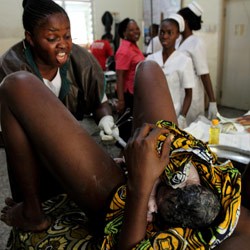PRESIDENT'S ESSAY

MacArthur Foundation Former President, Robert L. Gallucci
Learning for Change
A Learning Agenda
We have a deeper understanding of the value of a purposeful approach to learning from every phase of our work. I am looking for us to be even more open to new ideas and fresh approaches to existing programs. At that same time, like all foundations, we need to hold ourselves accountable, be clear about our goals and methods, and make sure that everything we do is open to independent assessment.
This requires an organizational culture that is open and supportive, in which self-criticism is a norm, and the disposition to be ruthlessly honest is a requirement.
Foundations have an enviable freedom of action... They should be at the forefront of innovation, finding ways to apply new techniques to stubborn problems.
MacArthur aspires to be this kind of an organization. We are placing a higher priority on assessment and thinking more rigorously about how we build strategies, set goals, monitor progress, and evaluate results. Our goal is to strengthen the cycle of continuous improvement and self-reflection.
We also aim to increase transparency, believing that what we and our grantees are learning has value that should be shared with fields of work and other stakeholders.

MacArthur’s population and reproductive health grantmaking focuses on improving maternal mortality rates in India and Nigeria. Photo: Akintunde Akineye
And, like others, we are deploying new opportunities offered by technology. We have, for example, funded the Carnegie Airborne Observatory laboratory that uses chemical analysis to remotely identify the plant species present in tropical landscapes. This yields results that would be impossible to achieve by traditional means, indicating the prevalence of invasive plants over large landscapes in a single study. Monitoring of elections in Nigeria through mobile phones made a significant contribution to a more open and accurate poll. And new approaches to collecting and analyzing economic and social data could make our work in Chicago’s disadvantaged neighborhoods more sophisticated and responsive. Our support for the City of Chicago to work with Chapin Hall and the Computation Institute at the University of Chicago will help lay the foundations for urban analytics that will inform new directions for research, policy, and practice.
Foundations have an enviable freedom of action. At a time when information management is being transformed by digital platforms, they should be at the forefront of innovation, finding ways to apply new techniques to stubborn problems.